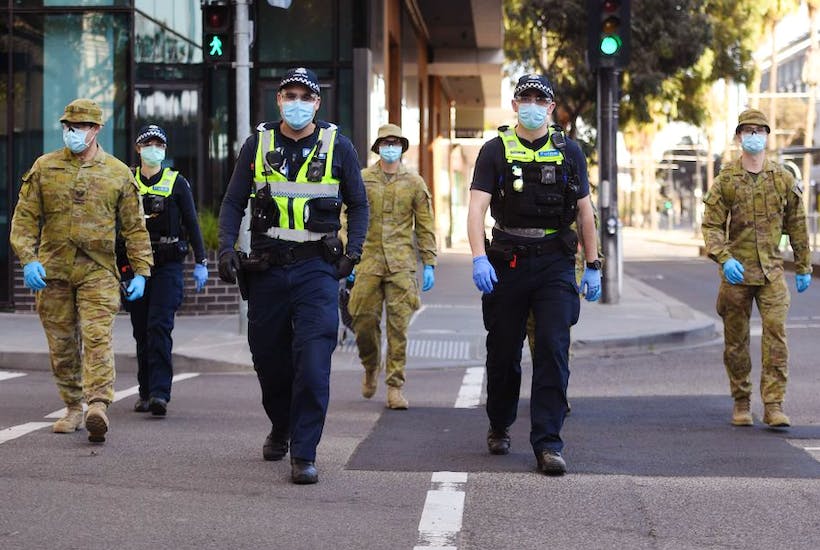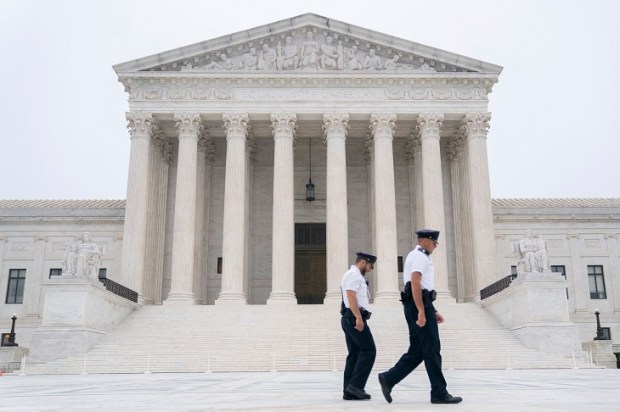The great English novelist Charles Dickens, based on his experiences, had a very dark view of lawyers and the legal system generally. In his novel, Oliver Twist we find the oft-quoted phrase: “The law is an ass.”
In Dickens’ view, the law no longer served the purpose of justice and fairness, but had become corrupted by arbitrariness so that it served the interests of the few, not the many. In other words, what is legal may not be lawful, indeed, it may be immoral. The most egregious atrocities in the twentieth century happened in a completely legal manner.
I could list for readers many instances over the last year and a half where some of us have been more equal than others, or where laws have been arbitrarily applied leading to unjust and tragic outcomes. Take for example Victoria’s Chief Health Officer Brett Sutton travelling to Canberra for the annual dinner of the National Health and Medical Research Council while Melburnians were prohibited from travelling more than 25km from home and couldn’t leave the state other than for work reasons. And who could forget what happened to Zoe Buhler?
What about Mark and Anneli Kilian, who flew from Los Angeles to Sydney in an attempt to see Mark’s 80-year-old father, an Australian citizen, who is dying of cancer in Queensland. They fear Mark’s father will not live long enough for them to complete the usual mandatory two weeks hotel quarantine for international travellers. At the time of writing they still couldn’t get an exemption, but Annastascia Palazcuck gave herself an exemption to get the Pfizer vaccine so she can go to the Tokyo Olympics.
Then there is this nonsense about ‘following the science’, as if it were some deific notion. Just like the “science” on climate change, it is highly contestable. Take the science on masks, which any number of epidemiologists will tell you have at best a negligible effect on transmission and, at worst, are counter-productive. Ramesh Thakur, in a brilliant piece in these pages in February, listed numerous studies asserting the same thing. As Roger Koops from the University of California wrote last year: “The mask mandate idea is a truly ridiculous, knee jerk reaction and needs to be withdrawn and thrown in the wastebin of disastrous policy, along with lockdowns and school closures.” Yet, at the time of writing, with 37 positives in NSW (in a state of over 6 million people), and no hospitalisations, the mask mandate is back because we have to ‘follow the science’. Of course, none of these politicians or health bureaucrats can produce a shred of evidence of the benefit of everybody wearing a mask.
Then there is the secrecy about the ‘science’. The Morrison Government has disgracefully refused to release the Treasury department’s assessment of the costs of measures such as border closures, lockdowns, and schools being shut. As John Roskam wrote in the Australian Financial Review on 18 June:
Professor Peter Swan at UNSW is almost certainly correct in his assessment of what the government is hiding – “It would seem highly likely that the government has ignored advice from Treasury and elsewhere that [the] lockdown is almost entirely unproductive and ineffective, as well as being economically crippling.”
Furthermore, during an appearance on The Bolt Report on 17 June, John raised the absolutely outrageous behaviour of the Western Australian Police in accessing personal details collected by businesses for contact tracing. In other words, if the government has the data it will use it for whatever purpose it likes.
In his most recent book, Enduring Ideas, Professor Gabriël Moens argues that there are instances of governmental arbitrariness which can be remedied only by means of civil disobedience, especially when some groups have entrenched power positions in society and use their power to impose their will on weaker and vulnerable classes of people.
Professor Moens argues that acts of civil disobedience may be protected by Articles 18 and 19 of the International Covenant on Civil and Political Rights, particularly when the opportunities for change which are provided by the legal system are deficient.
This is an issue for conservatives who uphold the noble ideal of respect for the rule of law. The problem is should we respect even bad law, and go on complying – especially when we don’t want to?
As Terry Barnes outlined recently in his Double Shot newsletter, we have ceded much of our personal choices and freedoms not only to elected ministers, but especially to unelected public health officials and other bureaucrats. They know almost all of us will comply with their directions. That the people directing us to do so utterly contradicted themselves won’t matter.
As conservatives, we often don’t do enough to scrutinise and question the emergency powers our parliaments confer on ministers and public health officials, particularly when they are not justified, as most of them are not, and often it is a case of ‘do as I say, not as I do’.
I’m not necessarily advocating for sustained lawbreaking. However, the time has come, with a federal election due within the next year, to let our parliamentarians know we as conservatives will no longer tolerate being taken for granted, especially when it is a case of ‘do as I say, not as I do’.
Let’s not forget that both major parties are on a unity ticket when it comes to public health orders. In each state, the Public Health Acts pursuant to which these orders are made, with all their totalitarian effects, were passed with bipartisan support. Indeed, Scott Morrison and Greg Hunt have gone out of their way to praise Daniel Andrews and his government for enforcing public health orders.
As our longest-serving Prime Minister, Sir Robert Menzies, said prophetically:
We need constantly to remind ourselves that democracy can produce tyranny just as readily as any other system of government unless the individual democrat has learned to attach supreme importance to individual freedom.
Dr Rocco Loiacono is Senior Lecturer at the Curtin University Law School.
Got something to add? Join the discussion and comment below.
Get 10 issues for just $10
Subscribe to The Spectator Australia today for the next 10 magazine issues, plus full online access, for just $10.


























Comments
Don't miss out
Join the conversation with other Spectator Australia readers. Subscribe to leave a comment.
SUBSCRIBEAlready a subscriber? Log in